Gluten – some will call it a friend, others call it a foe… but what’s the truth? 1/3 of American adults say that they’re trying to eliminate gluten from their diets. [1] While it’s “trendy” to go gluten-free nowadays, is it really necessary? Some may avoid it for health reasons, but are there gluten-free diet pros and cons, even if you don’t have Celiac Disease? Does it deserve the bad rap?
Here’s what you need to know about gluten, wheat, gut health & how it impacts your wellbeing. Keep reading to learn if the wheat-bashing is justified!
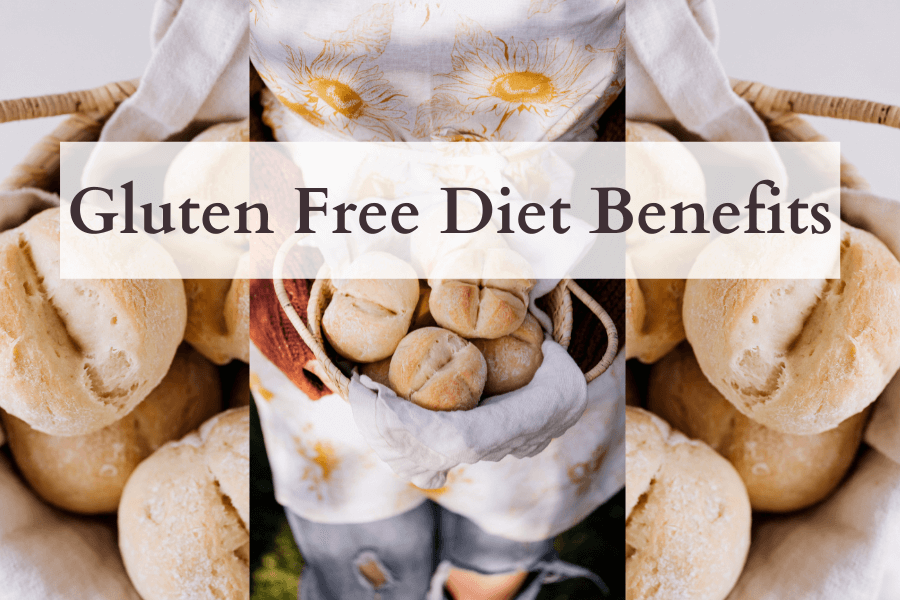
Note: This article contains affiliate links, meaning In On Around will make a small commission at no additional cost to you. This helps me maintain the site. As always, I value full transparency & only work with brands I love and trust.
What Is Gluten & Where Is It Found?
Gluten is a collection of proteins (like glutenin and gliadin) that’s naturally found in certain grains, like wheat, barley, and rye. That makes it a common protein found in bread, pasta, ales, crackers & more. Gluten proteins are not digestible… in fact it’s the only known protein in our food supply that’s completely indigestible!
It’s called gluten for a reason, it’s Latin for “glue”! Since it acts as a binding agent, it’s also commonly added to many food products that you wouldn’t expect, like sauces, desserts, soups, dressings, and more. It’s a sneaky little protein that hides in SO many products because of its “sticky” capability.
30% of shoppers are choosing gluten-free options.
US News
Have Wheat And Gluten Changed Over Time?
We are not eating the same kind of wheat that our grandparents ate. Modern wheat is making us sick. It is the most grown crop on planet Earth, yet modern wheat is less nutritious than the ancient grain. Copper, iron, magnesium, selenium, zinc, and other nutrients have decreased in modern wheat varieties. Plus, modern wheat actually has more gluten than the ancient strain… making it even more difficult to digest.
Today we make bread with highly refined, bleached, old white flour – many times this flour is rancid. Generally, white flour has a shelf life of 3-8 months… How many of you still have a big bag of flour hiding in your pantry? In the past, bread was made with freshly ground wheat. Regular consumption of white flour contributes to weight gain, high blood pressure, obesity (and thus heart disease), fatty liver, and more. [2]
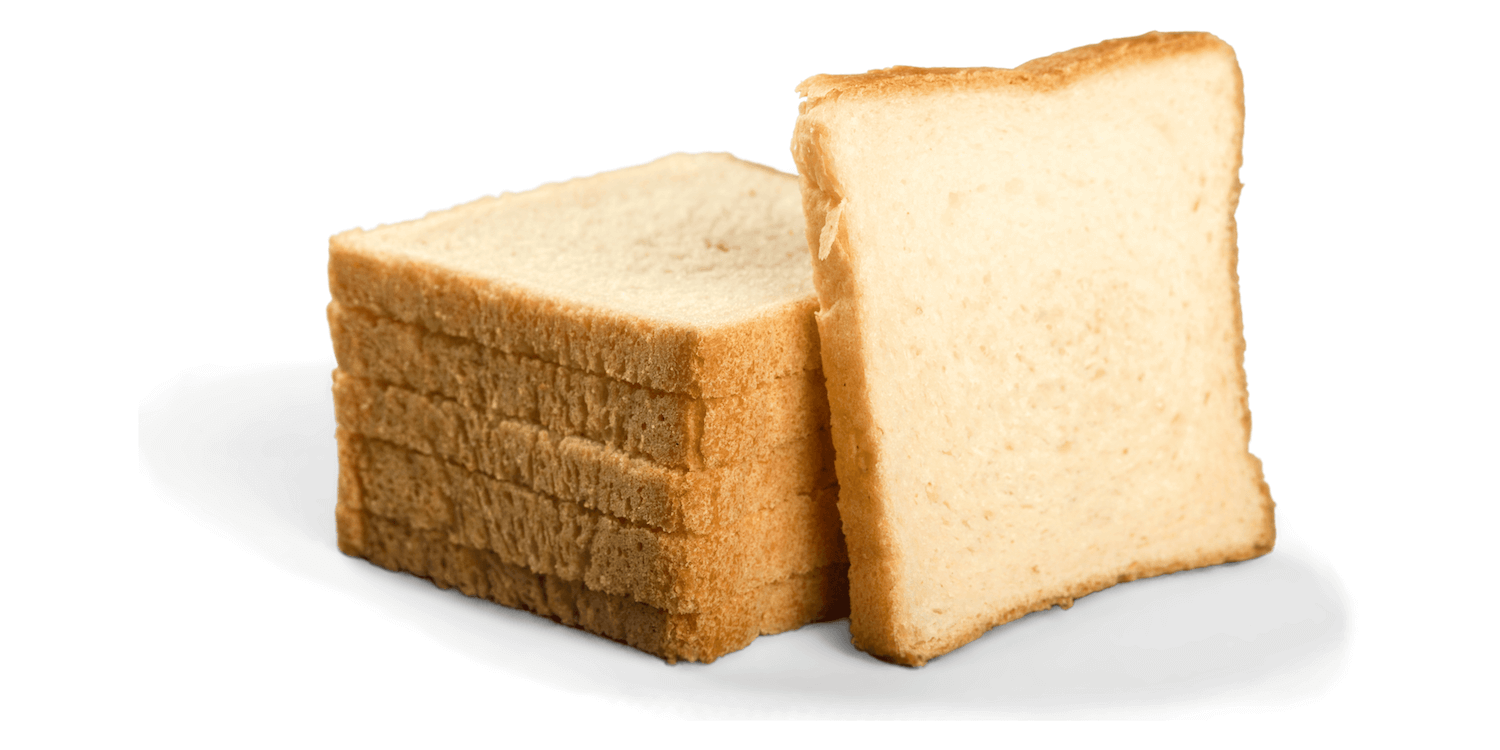
How Does Gluten Impact Your Health?
The body oftentimes can label gluten molecules as “foreign invaders” that should be fought off. This is why it’s the most common intestinal irritant and it can lead to many health issues.
- Especially in sensitive individuals with Celiac Disease, gluten is linked to: [3, 4]
- Digestive health issues, like stomach aches and bloating
- Skin and hair issues, like rashes
- Brain and nervous system disorders, like headaches
- Hormones imbalances
- Dental problems
- Fatigue
- Mood disorders, like anxiety
- Infertility
- Immune system disfunction
- May cause or worsen autoimmune conditions, like Grave’s Disease, Hashimoto’s Thyroiditis, Type 1 Diabetes, and Rheumatoid arthritis. [5, 6]
- May be linked to worsening other serious conditions like: [7, 8]
- Irritable Bowel Disease (IBD)
- Irritable Bowel Syndrome (IBS) – affects about 10-15% of the population [9]
- Crohn’s Disease
- Ulcerative Colitis
- Fibromyalgia
- Schizophrenia
- Endometriosis
- Can be a source of irritation in the gut & leads to systemic inflammation [10]
- May cause joint pain [11]
- Wheat can be contaminated with harmful pesticides like glyphosate. Glyphosate use can come with a looooong list of health effects, which can be found here:
- [Related Post: Glyphosate – What You Need To Know]
In addition, gluten has been linked to intestinal permeability aka “leaky-gut” (meaning undigested food particles, toxins, and gut bacteria “leak” through the intestine into the bloodstream). This greatly affects digestion since the body isn’t producing the enzymes required. It also leads to inflammation since your body starts to work hard to destroy the “invaders.” We want the lining of our intestines to be strong and tight… not “leaky.”
Celiac Disease vs. Gluten Intolerance – What’s The Difference?
There are distinct differences between those with Celiac Disease and those with Gluten Sensitivity.
Celiac Disease
… is an inflammatory autoimmune condition, specifically in the small intestine, that affects about 1% of the world’s population (1 in every 100 people). When someone with Celiac eats gluten-containing foods, it damages the lining of the small intestine, which are essential for nutrient absorption. This damage can lead to intestinal issues, weight loss, diarrhea & other not-so-fun symptoms like fatigue, vomiting, constipation, etc… People will Celiac Disease should avoid gluten-containing foods, like bread and cereals, at all costs.
In addition, since it’s an inflammatory response the body can respond with a wide range of symptoms, like osteoporosis, neurological disorders, skin diseases, and more. If you’re experiencing symptoms of Celiac Disease, talk to your doctor!
Note: this is different than a “wheat allergy,” where you could go into anaphylaxis. Always read your food labels, especially since some products are made in facilities that also process gluten-containing products.
Gluten Intolerance (or Gluten Sensitivity)
… on the other hand, can be tricky to pin down. This is when someone has difficulty stomaching gluten-containing foods, but it’s not classified as traditional Celiac Disease since it won’t lead to long-term intestinal damage. Those with sensitivity can still experience similar symptoms issues like fatigue, joint pain, stomach aches, headache & more – not fun! Unfortunately, there’s no way to test for this, besides diet trial & error.
The crazy part: over 3 million people in America are living with Celiac Disease and 80% of them go undiagnosed. 80%!! If they are diagnosed in the end, it oftentimes takes 6-10 years to get to a diagnosis! [12]
3+ million people in America are living with Celiac Disease and 80% of them go undiagnosed.
Gluten-Free Diet Pros & Cons – The Bottom Line
- Let me make it clear: gluten & white flour are not health foods… but processed gluten-free products are also not health foods. Stick to real, plant-based whole foods whenever possible.
- Gluten is pro-inflammatory. It contributes to leaky gut in many people.
- Most people would benefit from limiting gluten-containing foods. It may not be gluten that’s the issue, but modernized wheat.
- When you remove an irritating & indigestible protein from the diet (gluten), it can help the body recover from inflammation and heal.
Bottom Line: Although many gluten-containing foods can be delicious, the cons of gluten far outweigh the pros.
Gluten-Free Diet Plan For Beginners
- Even if something is gluten-free, it’s not always healthier.
- Beware: many companies add in additives and other nasty ingredients to make gluten-free foods more palatable.
- Gluten-free processed foods tend to have more sugar and fat, with less fiber. Additional preservatives and gums are usually added too. A lack of fiber in your diet can lead to further digestive symptoms.
- When in doubt, opt for the less-processed food product with essential nutrients, vitamins, and minerals.
- Ex: Replacing regular cookies or ice cream with gluten-free cookies will not help you. They’re still cookies, oftentimes with more sugar.
Gluten-free junk food is still junk food!
- Some people who believe they are gluten-sensitive, may actually be sensitive to the carbohydrates found in other parts of wheat (FODMAPS)… Limiting or cutting out wheat consumption could help!
- If you’re not sure if you have a gluten sensitivity, eat gluten-free for a couple of weeks. Slowly start re-introducing gluten-containing foods into your diet and keep track of your symptoms. Did you energy levels improve? Did you feel better overall?
- As always, discuss any diet changes with your functional medicine primary care physician. If you suspect that you have Celiac Disease, speak with your doctor for blood work before cutting out gluten – you need to be eating it for the blood tests to work properly.

- As always, prioritize real predominantely plant-based foods. Opt for organic fruits & vegetables, which are naturally gluten-free and have great health-benefits. Healthy eating and having a balanced diet is one of the best ways to reduce inflammation in the body, lose weight, and lower cholesterol levels.
- [Related Post: How To Eat An Anti Inflammatory Diet]
- Once gluten is removed from your diet, support your gut with gut-healing fermented foods.
- You can replace wheat with other grains, like quinoa, millet, gluten-free oats, brown rice etc…
- If you’re eating gluten in moderation, opt for organic whole wheat instead of refined white flour.
- Speak with your doctor about incorporating high-quality digestive enzymes into your supplement routine (which can potentially help improve digestion, especially if you’re nutrient deficient).
Remember This About Gluten
Gut health is the foundation to your body’s “home.” Gluten can act as “termites” that chop away at that foundation over time.
Gluten is not necessary for health whatsoever… in fact, in many people, it can do more harm than good. If you’re struggling with gut health, I encourage you to try a gluten-free diet and work with a medical professional on restoring your gut lining. Even if you don’t think you have issues with wheat/gluten consumption, eat it only in moderation. You could be surprised by how good you’ll feel without inflammatory proteins!
Gluten 101 – Frequently Asked Questions
Click on the below FAQs to learn more!
What is gluten?
Can we digest gluten?
How does gluten impact your health?
How do you know if you're sensitive to gluten?
Do you eat a gluten-free diet?
Let me know your thoughts below! You can watch our web story here.
xoxo,

Want to read more? Check out my other articles here!
Information on gluten-free diet benefits & gluten-free diet pros and cons from: Harvard, Healthline, Live Science, The Celiac MD, US News, University of Chicago Medicine, Amy Meyers, Healthy Women, Arthritis-Health, GI Society, Dr Hyman, Chelsea Green, Marks Daily Apple
Copyright In On Around LLC 2021 ©. The statements made on this website have not been evaluated by the FDA (U.S. Food & Drug Administration). They are not intended to diagnose, treat, cure, or prevent any disease. The information provided by this website should not be used as individual medical advice and you should always consult your doctor for individual recommendations and treatment.

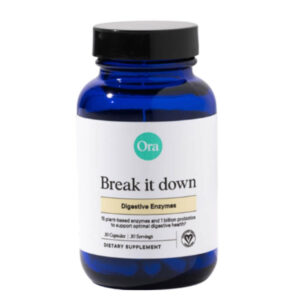
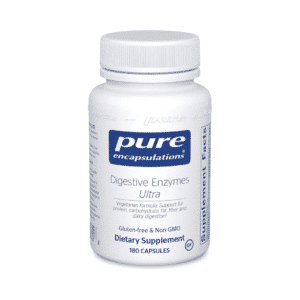
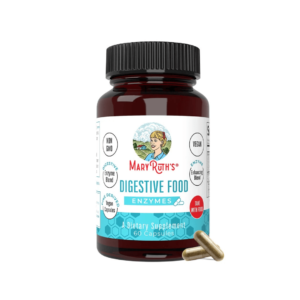

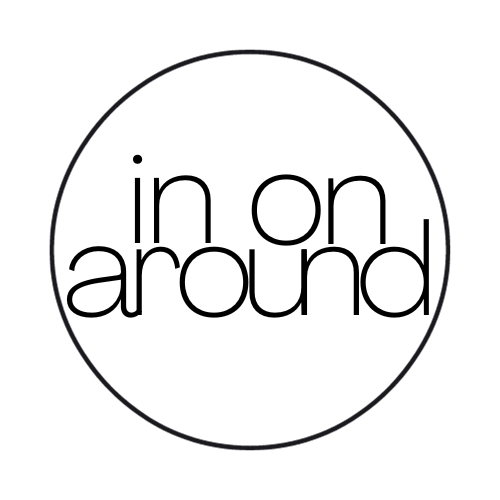

One Response
I love how unbiased and thorough this information is. Keep it up!